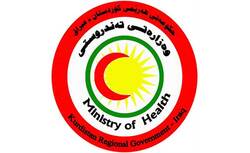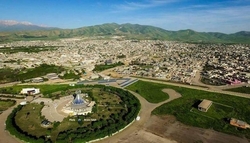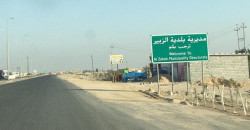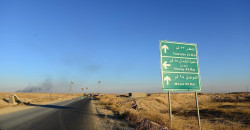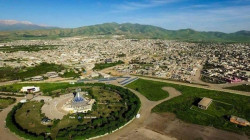Halabja granted, Nineveh to be divided: Iraq's unity in the balance
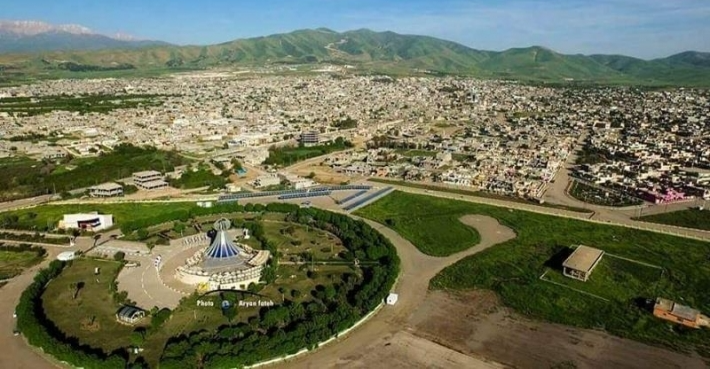
Shafaq News/ As the Kurdistan Region celebrates the formal recognition of Halabja as Iraq’s 19th province, a wave of opposition is building in Nineveh, where local leaders and political blocs are pushing back against calls to transform several of its districts into new administrative units. The proposals have sparked concerns over the potential sectarian and ethnic fragmentation, adding new layers of complexity to Iraq’s already delicate political landscape.
Federalism in Iraq
Two decades after Iraq’s 2005 Constitution defined the country as a federal republic, the vision of decentralization remains mostly unrealized and is confined in practice to the autonomous Kurdistan Region. Despite legal provisions for forming regions with administrative and legislative authority, federalism outside Kurdistan has struggled to take root, hindered by sectarian divides, political rivalries, and regional interference.
The Kurdistan Region, consisting of Erbil, al-Sulaymaniyah, Duhok, and since 2025, Halabja, stands as the only functioning federal entity in Iraq. With its own parliament, presidency, armed forces, and external relations, it exercises wide autonomy from Baghdad. This model has served as both a reference for decentralization and a point of contention, raising fears among other Iraqi factions of potential national fragmentation.
Iraq is composed of 19 provinces (governorates/Muhafazat.) The southern provinces, Basra, Dhi Qar, Maysan, Muthanna, Najaf, Karbala, Wasit, Babil, and al-Qādisiyyah, are predominantly Shiite. Baghdad is demographically mixed but leans Shiite. The north-western provinces, Nineveh, al-Anbar, and Saladin, are mainly Sunni Arab. Diyala and Kirkuk are among Iraq’s most diverse, inhabited by Arabs, Kurds, and Turkmen, both Sunni and Shiite. The four Kurdish provinces are largely Sunni Kurdish, with significant Yazidi and Christian minorities, especially in Duhok.
Although the Constitution allows provinces to form new regions through referendums, such initiatives have repeatedly stalled. In the south, calls for a Shiite region, especially in oil-rich Basra, have periodically resurfaced. Proponents argue it would allow locals more control over resources and governance, reflecting longstanding frustration with Baghdad.
In the late 2000s, prominent Shiite cleric Ammar al-Hakim supported such a vision. However, other Shiite leaders, including Muqtada al-Sadr, opposed it, warning that regionalization could entrench sectarianism and fracture national unity.
Among Sunnis, interest in forming a region, particularly across al-Anbar, Saladin, and parts of Nineveh, grew after the Islamic State's occupation and the subsequent war to expel it. Sunni proponents saw regional autonomy as a pathway to rebuilding local governance and enhancing security. But efforts failed to gain momentum amid leadership fragmentation, federal government resistance and fears that it would cement Iraq’s sectarian divisions.
Legal obstacles further complicate regionalization. Forming a new region requires both a provincial council initiative and a public referendum. External actors also play a role.
According to observers, Iran, influential over much of Iraq’s Shiite political elite, opposes the formation of a Sunni region, fearing it could serve as a foothold for rivals like Saudi Arabia or the United States. At the same time, Tehran is wary of a formal Shiite region in the south that might weaken its influence over Baghdad or empower more independent southern leaders.
Halabja is Paving the Way
On Monday, the Iraqi parliament officially granted Halabja provincial status, marking the culmination of over a decade of negotiations between the federal government in Baghdad and the Kurdistan Regional Government (KRG) in Erbil. The decision was met with widespread parliamentary approval, including support from the pro-Iranian Badr bloc led by Hadi al-Amiri.
However, celebrations were quickly overshadowed by fresh controversy as Badr bloc members proposed carving out the districts of Tal Afar, Sinjar, and the Nineveh Plains to form a new province.
MP Waad al-Qaddo described the move as necessary to address what he called a history of “administrative injustice and marginalization” in those areas.
“There has been significant oppression against the regions of Tal Afar, Sinjar, and the Nineveh Plains by former governors and local administrations,” Qaddo argued. “This compels us to demand the establishment of a new province to ensure justice for the communities living there.”
While reaffirming support for Halabja’s elevation as a “constitutional and legal right,” Qaddo urged lawmakers to consider a similar path for the disputed Nineveh districts. “The Badr parliamentary bloc supports the Kurdish demand to establish the province of Halabja,” he noted. “We believe that creating another province encompassing Tal Afar, Sinjar, and the Nineveh Plains is essential to achieving administrative fairness and restoring the rights of Iraq’s diverse communities.”
But the proposal triggered an immediate backlash in Nineveh. Political leaders and local figures warned that fragmenting the province could inflame sectarian tensions and threaten national cohesion.
It Is Not As Easy As It Looks
Efforts to carve new provinces out of Iraq’s Nineveh Province are not a recent development. The idea dates back to 2013 when the Badr Organization advocated separating Tal Afar and the Nineveh Plains. At the time, then-governor Atheel al-Nujaifi fiercely opposed the initiative and warned he would declare Nineveh a federal region if it proceeded. The plan stalled after ISIS seized Mosul and its surrounding districts in 2014, shifting national priorities.
Since the 2003 US-led invasion, the Nineveh Plain has remained a contested zone between Kurdish forces and Shiite factions. Initially controlled by the Kurdish Peshmerga, the area was designated a disputed territory under Article 140 of Iraq’s Constitution. This provision outlines a three-step process—normalization, census, and referendum—to resolve competing territorial claims in regions like Kirkuk, Sinjar, parts of Diyala and Saladin, as well as the Nineveh Plain. However, the balance of power shifted dramatically in 2017 when the Peshmerga withdrew, allowing Shiite groups and the Christian Babylon Brigades to establish a foothold in the area.
Yet, the drive to carve out new provinces extends beyond mere territorial control. The process is legally complex and financially burdensome. Shirwan al-Dobirani, a Member of Parliament’s Committee on Regions and Provinces, notes that such initiatives must begin with a vote in the local council. From there, the proposal winds its way through several bureaucratic stages, including the delineation of borders and securing approvals from critical ministries such as Planning, Communications, and Water Resources.
The case of Halabja, whose designation as a province took 12 years of negotiations between al-Sulaymaniyah and Baghdad, highlights the complexity involved. It required extensive documentation, multiple ministerial reviews, and final Cabinet approval before it reached Parliament.
Legal expert Mohammad Jumaa underscores that the creation of a new province is not merely a demographic issue but a fiscal and political decision. “It’s not just about population or geography…Budget allocations and available resources are key.”
Political analyst Aied al-Hilali warns that opening the door to similar requests could reshape Iraq’s entire administrative and fiscal structure. “If Tal Afar, Sinjar, Fallujah, Zubair, or Souq al-Shuyukh demand the same, the impact would be substantial,” he notes. “They’re no different from Halabja in their aspirations.”
Al-Hilali cautions that Iraq is not prepared for such a shift. “Transforming districts into governorates demands in-depth studies and careful economic planning. These decisions can’t be driven by sentiment. They require a strategic vision for how Iraq is governed.”
According to al-Dobirani, more than 300 administrative provisions must be addressed, especially within the Ministry of Planning. Law No. 21 stipulates that only local councils can initiate the process. Once approved locally, the request triggers a detailed implementation phase: border mapping, ministry coordination, and comprehensive reporting, culminating with Cabinet approval before reaching Parliament.
While momentum builds behind proposals for new governorates, al-Dobirani stresses that Parliament alone cannot authorize them. “This is the responsibility of the government and local councils. The financial burdens are substantial, and the government ultimately shoulders the cost,” he notes. “Any future efforts must fully weigh the administrative and fiscal consequences before moving forward.”
Warnings of Fragmentation
Proposals to establish new provinces in Iraq have stirred widespread concern, with experts and lawmakers warning of potential financial strain and deeper fragmentation within the country’s already intricate administrative framework.
Legal expert Al-Hilali urged against rushed decisions, emphasizing the need for careful evaluation. “There are old and influential districts—Fallujah, al-Zubair, Shatrah, and Souq al-Shuyukh—that have longstanding administrative, economic, and historical significance,” he noted. “Their aspirations to become governorates should be assessed thoughtfully, not through selective or reactive measures.”
The idea of decentralization may seem like a practical route toward better governance, but many caution that if handled recklessly, it could fuel division rather than reform.
Nowhere is the backlash more pronounced than in Nineveh, where both officials and residents have voiced strong opposition to proposals to split the province. The Axis Alliance issued a firm rejection of the idea, viewing it as a recipe for sectarian and ethnic division. “This direction does not represent the will of Nineveh’s people,” the alliance warned. “It is an irresponsible proposal that paves the way for the province’s division, opening the door to unacceptable demographic changes.”
They emphasized that decisions of such weight should only be taken through Nineveh’s legitimate representatives and in line with constitutional mechanisms, not through politically motivated recommendations that lack local support. That sentiment was reinforced by Ahmad al-Jubouri, a Member of Parliament representing Nineveh, who described the move as a dangerous step toward national disintegration. “Accepting the division of Nineveh on sectarian or ethnic grounds will only be the beginning of Iraq’s fragmentation,” he cautioned.
Many leaders view Nineveh’s diversity not as a challenge, but as a source of strength. Jamil Abdul Sabak, another prominent MP from the province, argued that the mosaic of communities—Arabs, Kurds, Turkmen, Christians, Yazidis, Shabak, and others—should be a reason to preserve unity, not threaten it. “This diversity is not a reason for division; it is a source of strength that should be protected and nurtured,” he said.
Sabak also believes that efforts to fragment the province under the guise of administrative efficiency or minority protection serve narrow political interests rather than genuine governance needs. “The strength of Nineveh lies in its unity,” he added. “Fragmenting it will only deepen societal divides and weaken local governance.”
He further rejected the idea that division would enhance conditions for minorities. Instead, he argued, the path forward lies in balanced development, administrative justice, and broad political inclusion. “The solution lies not in fragmentation,” Sabak stated, “but in building a system that works for everyone.”
Adding to the tension is the timing of these proposals, which have emerged just months ahead of the November 11 parliamentary elections. Hisham al-Hashimi, a member of the Nineveh Provincial Council, believes the push to establish new provinces is driven more by electoral maneuvering than by genuine concern for local governance. “These efforts are not about what’s best for Nineveh, they are about advancing certain political projects at the expense of the province’s unity,” he observed.
Amid the controversy, what remains clear is a shared determination among Nineveh’s people and many of its leaders to defend the province’s unity. For them, the province’s rich mosaic is a reflection of Iraq itself.
As Iraq contemplates further administrative reform, the future of Nineveh serves as both a warning and a question mark: Can decentralization be pursued without fracturing the state? The answer will shape the country’s path for years to come.
